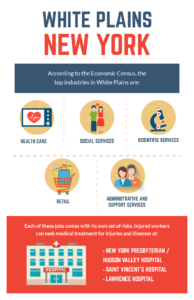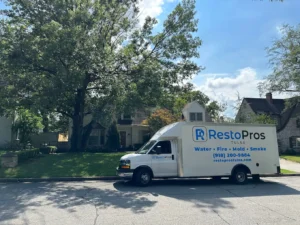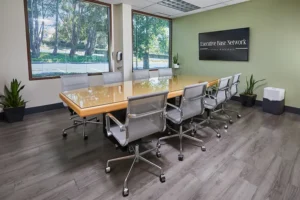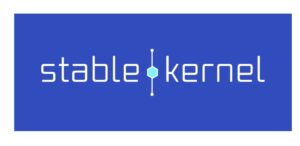Grapevine, Texas / Syndication Cloud / August 4, 2025 / Sage Senior Support

Key Takeaways
- Housing equity trapped in the family home is the #1 financial barrier preventing seniors from accessing vital care, creating a painful paradox where their greatest asset becomes their biggest obstacle.
- Sage Senior Support eliminates this barrier through direct ‘as-is’ home purchases, completing transactions in days rather than months, with no repairs, showings, or real estate commissions.
- Beyond just buying homes, Sage provides comprehensive transition support – covering immediate move-in fees, coordinating logistics, and managing the emotional burden of downsizing.
- Delayed transitions due to home sale complications often result in worsening health conditions, increased family stress, and unnecessary financial drain from maintaining two properties.
- Having experienced this struggle personally with his wife’s grandmother ‘Mema,’ founder Logan Hassinger created Sage Senior Support to ensure no family faces these difficult transitions alone.
Home Equity Trapped: The Critical Barrier Between Seniors and Vital Care
When your parent or loved one needs to transition to assisted living or memory care, one obstacle consistently stands between them and the care they desperately need: the family home. What should be their greatest financial asset often becomes their biggest obstacle to accessing proper care.
The situation creates a painful paradox. Most seniors have their wealth tied up in their homes, but this equity remains inaccessible during the very moment they need it most. The traditional home selling process – with its repairs, showings, and months of uncertainty – creates an impossible timeline when health needs are urgent and immediate.
“We frequently see families who know their loved one needs care now, but they’re trapped waiting months for a home to sell through conventional methods,” says Logan Hassinger, founder of Sage Senior Support, a company specializing in helping seniors and their families navigate these difficult transitions.
The #1 Obstacle: When Housing Finances Block Access to Necessary Care
How the Family Home Becomes a Financial Burden During Health Transitions
The family home transforms from a sanctuary into a financial burden precisely when seniors face health crises. If you’re dealing with this situation, you’re likely facing several overwhelming challenges:
- Finding thousands of dollars for community fees and deposits while your parent’s wealth is tied up in their home
- Managing the physical demands of preparing a house for sale while simultaneously coordinating medical care
- Maintaining mortgage payments, utilities, and insurance on an empty house while also paying for care
- Racing against time when an assisted living community has an immediate opening but requires substantial upfront payment
For many families, these obstacles create an impossible situation. Your parent may have a room waiting at an assisted living facility that perfectly meets their needs, but without quick access to their home equity, they simply can’t afford to move in.
The Emotional and Physical Costs of Delayed Care Decisions
The financial barrier of trapped home equity creates a cascade of negative consequences that go far beyond money. When seniors can’t access the care they need because their wealth is tied up in their home, their health often deteriorates rapidly in ways that could have been prevented.
A senior who needs assisted living support might fall repeatedly while waiting for their home to sell. Someone showing early signs of dementia may experience dangerous wandering behaviors or medication mistakes. Nutrition often suffers as cooking becomes more challenging, accelerating physical decline.
“What starts as a need for assisted living can quickly escalate to requiring more intensive memory care or skilled nursing if transitions are delayed even a few months,” explains Hassinger. “We’ve seen situations where a 90-day traditional home sale process resulted in hospitalizations that could have been avoided with prompt care access.”
Beyond the physical toll, the emotional burden on families is crushing. Adult children often find themselves stretched between daily wellness checks on their parent, managing their own families, and trying to handle home repairs – all while carrying the weight of guilt about not doing enough, fast enough.
How Sage Senior Support’s Process Works
1. Compassionate Assessment of Your Unique Situation
Unlike traditional real estate transactions that focus solely on property value, Sage Senior Support begins with understanding your family’s complete situation. Their process starts with listening – genuinely hearing your concerns, timeline needs, and what would constitute true relief in your circumstances.
“Before we ever talk about the house, we need to understand what you and your family are going through,” says Hassinger. “Are you managing this transition from across the country? Is there an immediate health crisis creating urgency? Do you need help finding the right care facility? These factors shape everything about our approach.”
2. Direct ‘As-Is’ Home Purchase Without Repairs or Showings
The cornerstone of Sage Senior Support’s solution is their direct home purchase program that specifically unlocks the trapped equity preventing seniors from accessing care:
- No repairs or renovations required – even for homes with significant deferred maintenance
- No staging, cleaning or preparing for dozens of showings with strangers
- No waiting 60-90 days for traditional closing timelines when care is needed now
- No real estate commissions (typically 5-6% of sale price) reducing proceeds for care
- No juggling two housing payments during extended selling periods
“Many of the homes we purchase have outdated kitchens, original carpeting, or even more serious issues like foundation problems,” Hassinger notes. “Traditional buyers would demand $30,000-$50,000 in renovations or significant price reductions, but we purchase them exactly as they are, which removes an enormous barrier between seniors and the care they need.”
3. Handling Belongings and Downsizing with Dignity
One of the most overwhelming aspects of senior transitions is managing decades of accumulated belongings when moving from a 2,000 square foot home to perhaps a 400 square foot assisted living apartment. Sage Senior Support provides comprehensive assistance with this process, approaching it with sensitivity and respect.
“We’ve helped families who feel paralyzed by fifty years of accumulated possessions,” explains Hassinger. “We create a manageable process that starts with identifying the most meaningful items that should move to the new living situation, then helping distribute keepsakes to family members, and finally respectfully handling the remaining belongings.”
This might include coordinating with senior move managers, organizing family distribution days, or handling donation arrangements – all tailored to each family’s specific needs and timeline.
4. Coordinating with Care Providers and Facilities
Sage Senior Support maintains relationships with senior living communities throughout the region, allowing them to help coordinate the entire transition process. This often includes:
- Negotiating with facilities to hold rooms during the transition process
- Sometimes covering community fees and deposits (typically $4,000-$8,000) to secure placements
- Coordinating move-in logistics with care directors
- Arranging transportation and medical transfers when needed
“We’ve developed relationships with care communities specifically so we can bridge these gaps for families,” says Hassinger. “When a family is struggling with both the emotional and financial aspects of a transition, we can often negotiate arrangements that make the impossible possible.”
5. Simplifying Closings (Even at Assisted Living Locations)
Understanding that mobility can be a significant challenge for seniors, Sage Senior Support brings the closing process to wherever is most convenient for the family.
“We regularly conduct mobile closings at assisted living facilities,” says Hassinger. “One recent client had severe mobility issues, so we brought all the paperwork to her new apartment, along with a mobile notary. She signed everything from her favorite chair, without the stress of trying to arrange transportation to a title company.”
Sage’s Relief-First Approach
Removing Financial Barriers with Community Fee Coverage
Recognizing that the gap between deciding on senior care and being able to afford it can be substantial, Sage Senior Support often covers immediate move-in costs to ensure seniors can access care without delay.
“In many cases, families know exactly where their loved one needs to be, but they’re caught in a financial catch-22,” Hassinger explains. “They need the proceeds from the home sale to afford the care community, but they can’t sell the home quickly enough to secure the spot that’s available right now.”
This happened with a client named Sherwood, who had suffered a stroke while his wife needed in-home care. The perfect assisted living apartment was available, but they lacked the $6,000 in upfront community fees to secure it. Sage covered these non-refundable fees immediately, allowing them to move within days rather than losing the space while waiting for their home to sell.
This bridge financing ensures that care isn’t delayed while the home sale process is completed – often making the difference between a smooth transition and a health crisis.
Uncovering Hidden Benefits (Veterans Aid, Medicaid Options)
Beyond addressing immediate financial needs, Sage helps families identify and access additional funding sources that many don’t realize are available.
“We were helping a woman named Diane who was acting as power of attorney for her friend with advancing dementia,” recalls Hassinger. “During our conversation, I learned her friend was a veteran’s widow, but had no idea she qualified for VA Aid and Attendance benefits. We connected her with resources to secure over $1,400 monthly in additional care funding – money that would have otherwise gone unclaimed.”
Sage regularly helps families examine:
- Veterans benefits for veterans and surviving spouses (often $1,400-$2,500 monthly)
- Medicaid qualification strategies that protect assets while securing benefits
- Long-term care insurance benefits that might cover in-home or facility care
- Life insurance policies that can be converted to pay for care through life settlements
Providing Educational Resources Before Decisions Are Made
“We provide our free eBook ‘How Will We Afford Care?’ to every family we meet with, regardless of whether they work with us,” Hassinger notes. “It outlines options many families don’t discover until it’s too late, potentially saving them tens of thousands of dollars.”
These resources create a foundation of understanding that helps families navigate complex decisions with confidence rather than fear.
Real Family Transformations
From Crisis to Care: When Health Emergencies Demand Immediate Solutions
When Mr. Lori was found on the floor of his home after being immobilized by neuropathy for several days, his situation quickly became critical. After hospitalization and rehabilitation, his doctors made it clear he could no longer safely live alone.
“Mr. Lori was only in his mid-sixties – one of our younger clients – and felt deeply depressed about losing his independence,” Hassinger recalls. “But his home needed significant repairs, and he simply couldn’t risk another fall with no way to call for help.”
Sage purchased his home directly, coordinated with a senior moving company to help him downsize from 1,500 square feet to a 300 square foot studio, and even helped move some special items like his favorite bookshelf to make his new space feel more like home. His sister in Pennsylvania finally had peace of mind knowing he was receiving daily meals and had emergency support available 24/7.
Managing Transitions from a Distance: Support for Out-of-Town Families
When Darla inherited a property after a family member passed away, she faced the daunting task of selling it while living three hours away. As executor of the estate, she hadn’t even seen the home in over a decade and had no idea of its condition.
“We took photos, videos, and created a floor plan to help Darla understand the property remotely,” explains Hassinger. “We coordinated with the tenant for access, provided detailed market insights, and eventually earned her trust through consistent communication over several months.”
When Darla made a last-minute trip to clear belongings before closing, the Sage team personally met her at the property to help move items and load them into her trailer – going far beyond a typical real estate transaction to provide genuine support during a difficult time.
When Traditional Home Sales Would Delay Vital Care
Linda and her husband faced a critical decision when her cancer treatment and his declining mobility made staying in their home unsafe. They found an ideal two-bedroom assisted living apartment, but felt overwhelmed by the prospect of selling their home of over 30 years.
“They were embarrassed about showing their home in its current condition,” Hassinger shares. “Years of accumulated belongings and maintenance they couldn’t keep up with made the thought of traditional showings unbearable, especially while dealing with cancer treatments.”
Sage assured them there would be no judgment, purchased their home as-is, and told them they could simply leave behind anything they didn’t want to take – a tremendous relief when their energy needed to be focused on health and adaptation to their new living situation.
Beyond Real Estate: A Complete Support System
Access to Personally Vetted Senior Living Professionals
Finding trustworthy care providers is one of the most stressful aspects of senior transitions. Sage Senior Support maintains relationships with carefully selected professionals to remove this burden from families.
“When my own grandfather needed to move to assisted living after losing my grandmother last summer, I relied on the same network of professionals we recommend to our clients,” shares Hassinger. “I know firsthand how critical it is to work with people who treat seniors with dignity and respect during vulnerable transitions.”
This network includes senior living placement specialists who know which communities have the best care standards, elder law attorneys who specialize in protecting seniors’ assets, and senior move managers who understand the emotional aspects of downsizing decades of belongings.
Step-by-Step Blueprint Through the Entire Transition
To combat the overwhelm that paralyzes many families, Sage provides a comprehensive roadmap that guides them through the entire transition process – from recognizing it’s time for a change through settling into new living arrangements.
“Our blueprint breaks down what feels like an impossible mountain into manageable steps,” Hassinger explains. “Families tell us that just having clarity about what to do first, second, and third removes a tremendous burden when everything feels chaotic.”
This framework helps prevent common mistakes, ensures critical details aren’t overlooked, and gives families confidence during one of life’s most challenging transitions.
From Overwhelm to Relief: The Path Forward for Your Family
The journey from recognizing your loved one needs more care to successfully transitioning them doesn’t have to be marked by financial stress, emotional trauma, and logistical nightmares. With the right support, this challenging life change can be navigated with dignity and even moments of peace.
Sage Senior Support was born from Logan Hassinger’s personal experience watching his wife’s family struggle to find appropriate care for her grandmother, “Mema.” He vividly remembers the look on his wife’s face – the confusion, the fear, the overwhelming feeling that no matter what choice they made, it might be wrong.
“That moment changed everything for me,” Hassinger reflects. “I promised myself no family should have to walk this path alone, without someone who truly understands both the practical and emotional aspects of these transitions.”
Today, Sage Senior Support continues to fulfill that promise by removing the #1 obstacle between seniors and vital care – the financial and logistical barriers of the family home – while providing compassionate guidance every step of the way.
If you’re feeling overwhelmed by the prospect of helping a loved one transition to appropriate care, Sage Senior Support is ready to help you through one of life’s most challenging journeys with both practical expertise and genuine compassion.
Sage Senior Support
1452 Hughes Rd
Suite 200
Grapevine
Texas
76051
United States

































